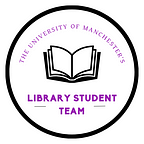Top Ten Tips: Revision Strategies — Part Two
By Chloe from the Student Team
Exam season is upon us. But never fear, the Student Team have put together a fantastic list of top tips to help you with revision. If you’d rather listen to the top tips, please find the podcast below…
Top Tip 1
Use coloured pens in your notes. Colour coordination may help you recall a mental picture of your notes.
It also makes the content look more inviting and can help you follow it better when revising!
Top Tip 2
Make flashcards. Write down key words and facts to help prompt your memory. These are great if you want to revise on the go.
You can go through them on the bus to uni, the train home, or even for some final revising before the exam.
Top Tip 3
Group study. Working with other students allows you to share resources and knowledge. Working together and bouncing ideas off of each other is a great way to cover gaps in your understanding.
Explaining concepts to each other is also extremely useful — I often split the study materials with a classmate and then we each took turns explaining our parts to the other. Of course, we then individually went through all the materials, but that conversation made the work much more manageable!
Top Tip 4
Cornell notes. Divide your page into three sections. Write any key terms, dates or questions on the left and write your notes on the right side. Write a concise summary at the bottom of the page.
This is a great way of organising your ideas and I found it super useful when preparing for exams, as I could go through the main topics on the left and only read what’s on the right if I couldn’t remember exactly what the topic was about.
Top Tip 5
KWL technique. Divide the page into three columns labelled KNOW, WANT, WANT TO KNOW and LEARNED. Get started on the WANT TO KNOW section!
This technique will help you to identify gaps in your knowledge and it’s very useful when you want to narrow down what types of evidence or reading you need to look for.
Top Tip 6
Questioning Matrix. Use the questioning matrix to break down your questions into smaller sections. This helps you focus on the question in more detail and ensures that you address all parts of the question.
This is particularly useful for questions where you have to discuss factors and give examples.
Top Tip 7
Podcasts. If you’re an aural learner, this can be an excellent way to retain material.
Listening to podcasts is one of my favourite revision techniques. No matter if you’re on your commute, on the treadmill or sat on the sofa, podcasts are a relaxing and alternative way to approach your revision.
Top Tip 8
Record yourself speaking. Recite the material to yourself and record it. Listen back afterwards and see if you explained the content well and identify any weak areas.
No one likes the sound of their own voice, however, recording yourself explain a topic and listening back to it can be really useful when revising. Not only does it help you identify if you explained the content well but can also can help to identify gaps in your knowledge.
Top Tip 9
Quizlet. This website allows you to make online flashcards and play games to help you remember information.
Quizlet is particularly useful if you are learning a language. It’s also really easy to revise on the go — you just need the app on your phone!
Top Tip 10
Create a PocketMod. They are perfect for revising whilst on the move. Use the different pages to condense your topic down to key themes, terms, and dates.
PocketMods are customisable and perfect for revising on the move. Summarising your topic down to key themes will also make the information more manageable.
That’s all our top tips for this week! We hope you have found them useful and wish you the best of luck for the rest of the exam season.
